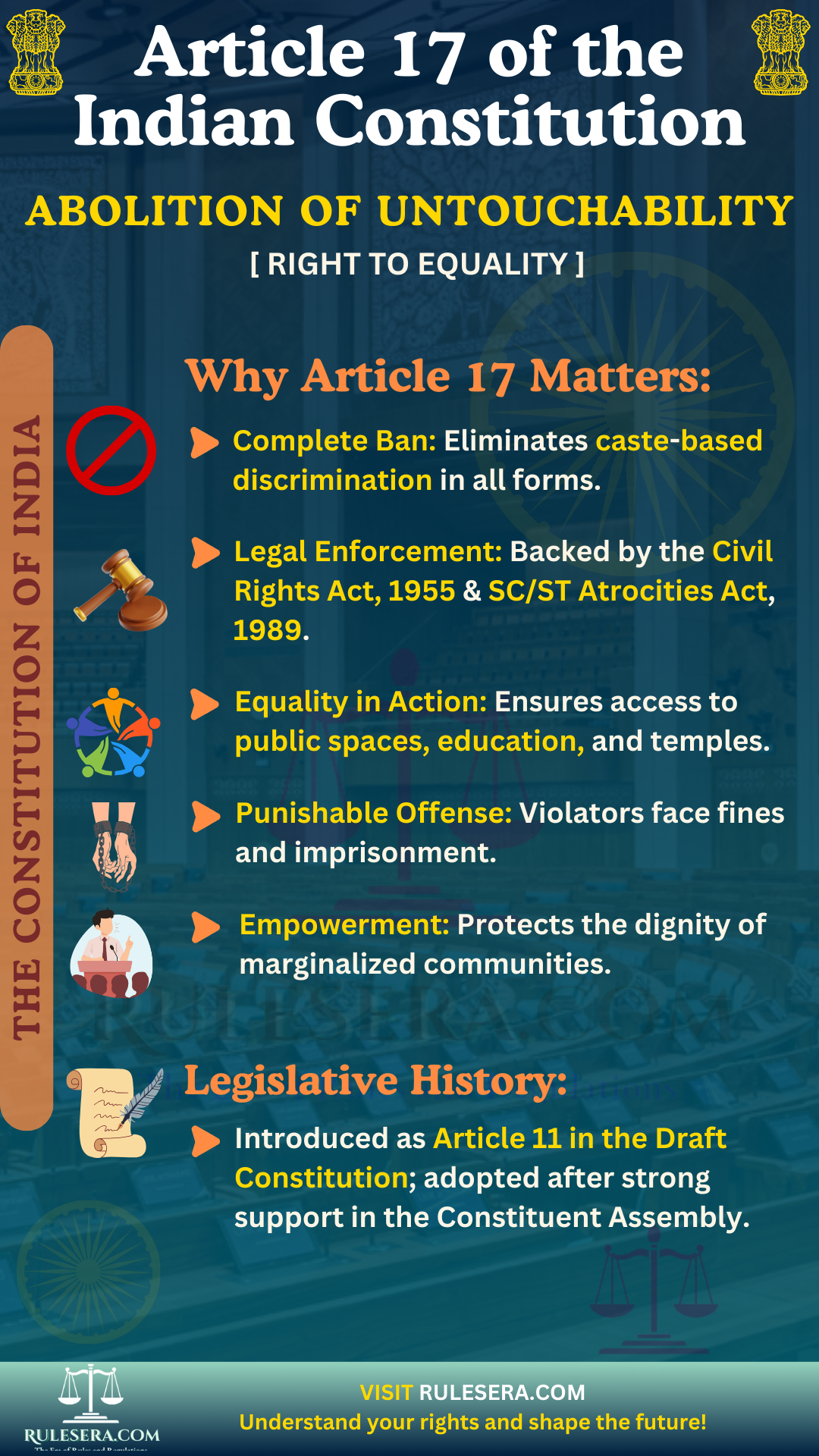Article 17: Abolition of Untouchability

“Untouchability” is abolished and its practice in any form is forbidden. The enforcement of any disability arising out of “Untouchability” shall be an offense punishable in accordance with law.
Explanation
Article 17 reflects the commitment of the Indian Constitution to eradicate untouchability in all its forms. It ensures that the practice is not only abolished but also criminalized, enabling legal recourse for those affected.
Key Aspects of Article 17
- Abolition of Untouchability: Declares that untouchability, in any form, is abolished, signifying a constitutional rejection of this social evil.
- Prohibition of Practices: All forms of untouchability, including restrictions on entry to temples, schools, and public places, are banned.
- Punishable Offense: Engaging in untouchability practices is a punishable offense under laws like the Protection of Civil Rights Act, 1955.
Real-Life Applications
For instance, the case of a Dalit man denied entry to a temple in Tamil Nadu in 2018 led to prosecution under the Protection of Civil Rights Act, demonstrating the ongoing relevance of Article 17 in fighting caste-based discrimination.
Frequently Asked Questions (FAQs):
Article 17 is significant as it abolishes untouchability and criminalizes its practice, promoting social equality and justice.
The Protection of Civil Rights Act, 1955, and the SC/ST (Prevention of Atrocities) Act, 1989, provide legal frameworks for punishing acts of untouchability.
No, Article 17 categorically abolishes untouchability with no exceptions, ensuring that caste-based discrimination is entirely eliminated.